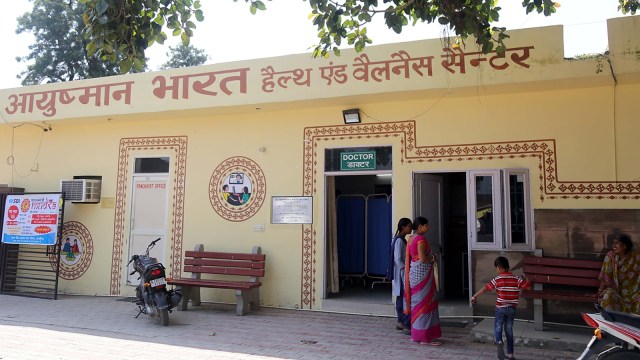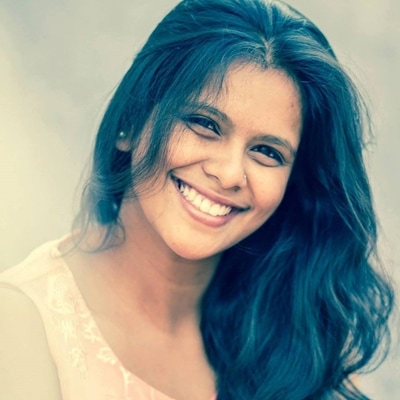Lancet study shows Ayushman Bharat helped more people access timely cancer therapy (original) (raw)
 Timely initiation of cancer treatment increased by 36% across the population. (Express Archive)
Timely initiation of cancer treatment increased by 36% across the population. (Express Archive)
While better knowledge and healthcare facilities have reduced delays in starting cancer treatment in India, the decline was steeper among people enrolled in the Centre’s flagship Ayushman Bharat programme, according to a recent study published in the Lancet journal.
In other words, the health insurance-enabled access to therapy helped a larger number of patients. Timely initiation of cancer treatment increased by 36% across the population. However, it increased by 90% among those covered by the insurance scheme after 2018 as compared to the period between 1995 and 2017. The Ayushman Bharat scheme, which provides health cover to the poorest 40% of the country’s population, was rolled out in 2018.

“On World Cancer Day, a study published by Lancet shows that under AB PM-JAY (Ayushman Bharat- Pradhan Mantri Jan Arogya Yojana), timely cancer treatment initiation improved significantly. Patients enrolled saw a 90% rise in access to cancer treatment within 30 days. Delays reduced and financial burden eased, a game-changer for India’s healthcare,” said Union Health Minister JP Nadda on X. He added that PM-JAY was bridging the gap in access to healthcare between rural and urban India, empowering millions to receive timely treatment.
STUDY FLAGS NEED FOR FACILITIES
While appreciating the government’s health safety net, the study looked at the data of nearly 6,700 cancer patients and made a strong case for a need to increase cancer care facilities such as radiotherapy machines. It found that the highest delay in treatment initiation was for radiotherapy, followed by chemotherapy and surgery. This “is an important argument for strengthening public healthcare infrastructure for provision of radiotherapy to cancer patients in India as well as inclusion of cost-effective chemotherapeutic agents in Ayushman Bharat,” the study said.
It flagged how the estimated 779 radiotherapy machines across the country fell short of the required numbers. Most high income countries have four machines per 10 lakh population while the World Health Organization (WHO) recommends at least one machine per 10 lakh population. By this standard, India would need between 1,350 to 5,000 radiotherapy machines, the study said.
WHICH POPULATION SEGMENT SOUGHT TREATMENT
Researchers compared the people who initiated treatment on time to those who didn’t — meaning, those who started treatment within 30 days versus those who did it after 30 days. They found that timely treatment was started by younger patients under the age of 30 years (77% as compared to 23%), those who were more educated (70.2% as compared to 29.8%), and those who were covered under some scheme (69% as compared to 31%). Nearly 40% of the study participants were not covered by any scheme. Those with higher income were also less likely to delay treatment, according to the study.
The researchers said that the “…expansion of cancer care services under the national flagship insurance program…appear to have helped in decreasing the financial barriers to access and improve early initiation of treatment.”
WHICH CANCERS SAW TIMELY TREATMENT
Story continues below this ad
The steepest decline in delayed treatment was seen for reproductive and genitourinary cancers, followed by breast cancer and blood cancers. The highest delays in accessing treatment were in patients whose cancer stage was not known, meaning it was not mentioned in their patient records.
The researchers said this might be due to lack of access to proper diagnostic procedures, lack of trained manpower, or paucity of health facilities, leading to uncertainty of staging. This, in turn, may lead to improper or delayed decision-making on appropriate treatment.
Anonna Dutt is a Principal Correspondent who writes primarily on health at the Indian Express. She reports on myriad topics ranging from the growing burden of non-communicable diseases such as diabetes and hypertension to the problems with pervasive infectious conditions. She reported on the government’s management of the Covid-19 pandemic and closely followed the vaccination programme. Her stories have resulted in the city government investing in high-end tests for the poor and acknowledging errors in their official reports. Dutt also takes a keen interest in the country’s space programme and has written on key missions like Chandrayaan 2 and 3, Aditya L1, and Gaganyaan. She was among the first batch of eleven media fellows with RBM Partnership to End Malaria. She was also selected to participate in the short-term programme on early childhood reporting at Columbia University’s Dart Centre. Dutt has a Bachelor’s Degree from the Symbiosis Institute of Media and Communication, Pune and a PG Diploma from the Asian College of Journalism, Chennai. She started her reporting career with the Hindustan Times. When not at work, she tries to appease the Duolingo owl with her French skills and sometimes takes to the dance floor. ... Read More
© The Indian Express Pvt Ltd
- Tags:
- Cancer
